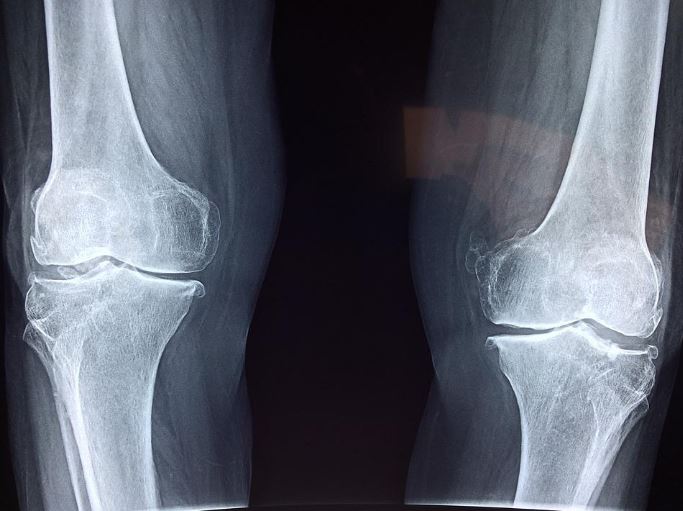50 human body organs in Spanish
As a child, did you not start off by learning about your head and toes and fingers. As you grew older, you learnt about how your body has so many organs. You would have definitely come across a chapter as “Organs of the human body”. Well, that’s true for everyone in the world. Similar to how you learnt about the list of organs of the human body in English, a child in Spain learns about the list of organs of the human body in Spanish.

The A1 vocabulary list all Spanish organs is as given below. You can also find Spanish example sentences for each organ. This list of Spanish organs is one of the most basic and important A1 vocabulary lists that you would need to know as a novice to the Spanish A1 language and in real life.
Topics:
- How do you say the Human body Organs in Spanish?
- Do you capitalize organs in Spanish? When to capitalize organs in Spanish?
- External organs in Spanish
- List of all well known organs
- Other organs in Spanish

How to say human body Organs in Spanish?
- WORD: The Spanish translation for “Organ” is “órgano”
- EXAMPLE SENTENCE: “The heart is a very important organ.” à El corazón es un órgano muy importante.
- WORD: The Spanish word for “The Human Body” is “El cuerpo humano”
- EXAMPLE SENTENCE: “There are 206 bones in the human body.” à Hay 206 huesos en el cuerpo humano.
Why is it important that I learn this list?
One of the “most” important topics in Spanish A1 is learning the vocabulary for how to describe your body parts in Spanish. A few examples of when you need to understand parts of the body in Spanish.
- You make my blood boil
- You make my hear race!
- I need to buy some bones for my dog.
Let us go through the vocabulary for Spanish Organs with a few example sentences for the same. Remember, the parts of the body in Spanish and the organs of the human body are lists you have to memorize for life and would be super critical when you visit a doctor so make sure that you get it 100% done!
External organs in Spanish
These are the main body parts in Spanish which you WILL DEFINITELY use daily since they are visible on the outside. You can learn the external body organs in Spanish.

| Organ name in English | Name of the organ in Spanish | Example sentence in English | Spanish Example sentence |
| The Eye / eyes | El ojo/los ojos | I have two eyes. | Tengo dos ojos. |
| The Ear / ears | La oreja/las orejas | I wear earrings because my ears are cute. | Uso aretes porque mis orejas son lindas. |
| The Nose | La nariz | He punched me in the nose. | Me dio un puñetazo en la nariz. |
| The Tongue | La lengua | I burnt my tongue. | me quemé la lengua. |
| The Skin | La piel | I have dry skin. | tengo la piel seca |
| The nails | las uñas | Trim your nails! | ¡Corta tus uñas! |
| The Tooth / teeth | El Diente / los dientes | We have thirty two teeth. | Tenemos treinta y dos dientes. |
| The Vagina | la vagina | I have a vagina. | tengo una vagina |
| The Penis | el pene | His penis is very long. | Su pene es muy largo. |
| The Testicle / testicles | El testículo / testículos | He has large testicles and a short penis. | Tiene testículos grandes y un pene corto. |
| The Anus | El ano | An earthworm has a mouth and an anus. | Una lombriz de tierra tiene una boca y un ano. |
| The Hair | El pelo | I have black hair. | Tengo el pelo negro. |
Human body organs in Spanish
You might need to be more generic in most cases when talking to friends. These are the main body parts in Spanish which you might use on a day to day basis in one way or another. You can learn the parts of the body in Spanish in with articles.

| Organ name in English | Name of the organ in Spanish | Example sentence in English | Spanish Example sentence |
| The Bone / bones | El Hueso / huesos | The bones are very weak. | Los huesos son muy débiles. |
| The Blood | La sangre | We need a litre of blood. | Necesitamos un litro de sangre. |
| The Heart | El corazón | My heart pumps blood. | Mi corazón bombea sangre. |
| The Lung / lungs | El pulmón / pulmones | The horse has very large lungs. | El caballo tiene pulmones muy grandes. |
| The Brain / brains | El cerebro / cerebros | The brain is the most important organ. | El cerebro es el órgano más importante. |
| The Stomach | El estómago | His stomach was empty. | Su estómago estaba vacío. |
| The Kidney / kidneys | El Riñón / riñones | The doctor removed a kidney. | El médico extrajo un riñón. |
| The Liver | El hígado | Alcohol affects the liver. | El alcohol afecta al hígado. |
| The Pancreas | el páncreas | I do not have a pancreas. | No tengo páncreas. |
Specialized organs in Spanish
You might need to be specific in some cases when talking to doctors. These are the more specific body parts in Spanish which you might use when describing an illness to you doctor.

| Organ name in English | Name of the organ in Spanish | Example sentence in English | Spanish Example sentence |
| The Muscle / muscles | El músculo / los músculos | The athlete has large muscles. | El atleta tiene músculos grandes. |
| The Ligament / ligaments | El ligamento / ligamentos | I need physiotherapy to strengthen my ligaments. | Necesito fisioterapia para fortalecer mis ligamentos. |
| The Tissue / tissues | El Tejido / tejidos | I need physiotherapy to strengthen my ligaments and tissues. | Necesito fisioterapia para fortalecer mis ligamentos y tejidos. |
| The Artery / arteries | La Arteria / arterias | There is impure blood in the arteries. | Hay sangre impura en las arterias. |
| The vein / veins | La vena / venas | Veins and arteries are quite long. | Las venas y las arterias son bastante largas. |
| The Tendon / tendons | El tendón / tendones | The surgeon removed the tendons. | El cirujano extrajo los tendones. |
| The capillary / capillaries | El capilar / capilares | What do capillaries do? | ¿Qué hacen los capilares? |
| The Tonsils | las amígdalas | The doctor looked at my tonsils. | El doctor miró mis amígdalas. |
| The Nerve / nerves | El Nervio / nervios | A human being has many nerves. | Un ser humano tiene muchos nervios. |
| The Small intestine | El intestino delgado | The small intestine is longer than the large intestine. | El intestino delgado es más largo que el intestino grueso. |
| The Large intestine | El intestino grueso | His large intestines are infected. | Su intestino grueso está infectado. |
Second extended list of organs
| Organ name in English | Name of the organ in Spanish | Example sentence in English | Spanish Example sentence |
| The Genitals | los genitales | I like my genitals. | Me gustan mis genitales. |
| The Gall bladder | la vesícula biliar | The gall bladder is not an important organ. | La vesícula biliar no es un órgano importante. |
| The Diaphragm | El diafragma | The diaphragm is below the lungs. | El diafragma está debajo de los pulmones. |
| The Mammary Glands | Las glándulas mamarias | A dog has eight mammary glands. | Un perro tiene ocho glándulas mamarias. |
| The Spleen | El bazo | Where is the spleen? | ¿Dónde está el bazo? |
| The Spinal Cord | La medula espinal | Your spinal cord is injured. | Su médula espinal está lesionada. |
| The Ovary / Ovaries | El Ovario / Ovarios | Women have ovaries. | Las mujeres tienen ovarios. |
| The Thyroid Gland | la glándula tiroides | The thyroid gland and the adrenal glands are very small. | La glándula tiroides y las glándulas suprarrenales son muy pequeñas. |
| The Skeleton | El esqueleto | We found the skeleton yesterday. | Encontramos el esqueleto ayer. |
Hope you had fun learning about the different organs in Spanish.



